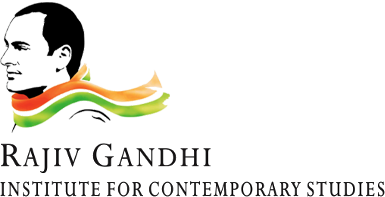Our Discourse Partners
In RGICS, we engage with a variety of discourse partners. This is born out of our conviction that public policy should be inspired and informed by what is happening on the ground. Our discourse partners are:
- Political leaders
- Policy makers – civil servants, technocrats, regulators
- Policy takers – users, providers
- Narrative opinion leaders- media, academia, civil society
- The common public – citizens’ groups
Our Work
We focus on five main areas of work:
- Constitutional Values and Democratic Institutions
- Growth with Employment
- Governance and Development
- Environment, Natural Resources and Sustainability
- India’s Place in the World
Constitutional Values and Democratic Institutions
This theme focuses on gender, caste and marginalized sections of society within the larger ambit of social justice and equity. This theme explores through research and policy analysis, various contemporary dynamics related to issues of justice, equity, equality and communal harmony and in it the inter-sectionality between gender, caste and marginalized sections of society like tribes and minorities. This theme also delves into the consequences of communal tension and majoritarianism on both the social and economic fabric of a country.
The sub-themes under this theme are:
- Trade-offs between economic growth and social equity
- The progress of and push-back on efforts towards social justice
- Understanding the causes for social tensions – a socio-psychological approach
Growth with Employment
The reforms of 1985 and 1991 placed India on a high-growth trajectory. However, India is still one of the poorest countries on earth. To ensure better lives for our citizens, we need to sustain a consistently high growth rate for several decades.
In our country, social inequalities have always been salient, but with higher growth, economic inequalities are also increasing. Thus, growth has to be accompanied by the generation of high-quality employment.
In this theme, the focus is on how public policy can enable widespread growth, especially in those sectors that can create employment at scale. There are three sub-themes under this theme:
- Agricultural transformation – a farmer-led value chain perspective;
- Small manufacturing and services in small towns; and
- Urban informal services sector – skills, secure jobs and self-employment.
Governance and Development
In the long term, the institutions of a country are perhaps the greatest determinant of its growth and development. Institutions are the “rules of the game in a society”; they determine incentives and outcomes in all spheres of human life. The institutions of governance of our country embody norms such as democracy, republicanism, accountability, transparency, citizenship, and human rights. Their fidelity to these norms are central to the development of any country, not just politically, but also economically and socially.
In this theme, we focus on how institutions of the state in India can work better to promote development. Our sub-themes under this theme are:
- District and Municipal local self-government
- Public systems – efficiency, accountability, transparency
- Legislative processes and the court system
Environment, Natural Resources and Sustainability
This theme focuses on contemporary issues related to climate change, sustainability and natural resources especially water, forest and land. Our work on these issues attempts to analyze policies and their implementation from people’s perspective, their experiences and learning. Under this thematic area we focus especially on following three sub themes
- Water, Forests and Land (Jal, Jangal, Jameen)
- The Trade-off between economic growth and sustainability
- Climate change and India’s response
India’s Place in the World
In an increasingly connected world, the nation-state is less sovereign today that it was ever before. Some of the most consequential issues today – climate change, terrorism, international trade, or global violations of human rights – cannot be dealt by any country in isolation. Under this theme, we work on how India can engage deeply with the rest of the world to protect its interests and to promote global peace and security. We focus especially on these three sub-themes:
- China, particularly on trade and investment
- International organisations – the UN & its organs, the WTO and the UNFCC & GCF
- Indian diaspora and soft-power
Channels
Our work involves convening, participating, and disseminating. The channels we employ for this are:
- Lok Samvad (public engagement , face to face with discourse partners)
- Mainstream media (Press / TV channels) including the Internet versions
- Audio-visual media- Podcasts, Youtube, etc.
- Social media – Facebook, Twitter, Instagram, etc.
- Cultural Media – film, theatre, literature

